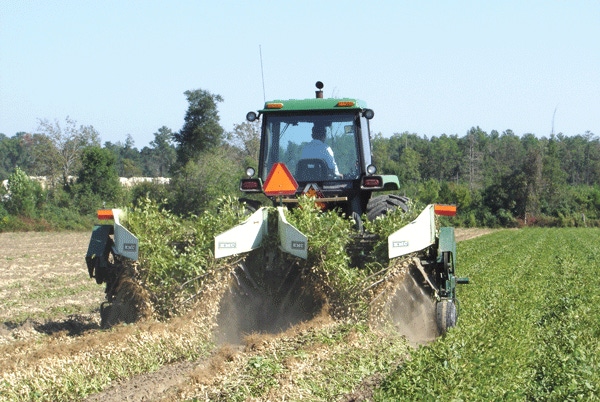
Temik fate may alter crop plans for 2011
• Growers have been aware for some time that Temik will no longer be available after the 2014 season. While many growers have long-term plans in place to change rotation strategies to help compensate for the loss of the popular nematicide/insecticide, few see many short-term options.
February 28, 2011

The possible loss of Temik for the 2011 cropping season has thrown a proverbial wrench into crop planning for cotton and peanut growers in the upper Southeast.
Growers have been aware for some time that Temik will no longer be available after the 2014 season. While many growers have long-term plans in place to change rotation strategies to help compensate for the loss of the popular nematicide/insecticide, few see many short-term options.
Bayer CropScience, maker of Temik 15G, is trying to put a revamped production facility in West Virginia back on line. The basic ingredients for Temik are made at this facility.
Residents in the area around the plant have filed a lawsuit to keep the production facility closed based upon their concern for their own safety.
A temporary restraining order affecting the production of a key intermediate used in the production of Sevin brand carbaryl and Temik brand aldicarb insecticides has been extended until March 28, to allow the court more time to consider its decision.
There is also some question as to whether distributors will be able to sell the product and at what cost. Most growers contend the extra $1 to $1.25 a pound will not be a significant issue, compared to the risk involved in planting cotton or peanuts without Temik.
If Temik is available for the 2011 crop season, do not expect to find the ‘corn cob’ formulations. Apparently, the gypsum formulation is easier to manufacture and will be first out of production, if production continues.
Seed treatment business brisk
The seed treatment business is brisk, as distributors scramble to find fungicide-treated seed. Getting an adequate amount of seed, in the desired variety, and getting that variety coated with the desired fungicide has some growers recalculating the costs involved in growing cotton.
The delay will have the most immediate effect on cotton and peanut planting. Even if the March ruling goes in favor of Bayer CropScience, manufacturer of Temik, there will be significant delays in getting the product to the market in large quantities.
Suffolk, Va., grower John Crumpler grows both cotton and peanuts and says loss of Temik for his crops will be difficult. Having to comply with restrictions for application of Vapam, a popular soil sterilant used to combat cylindrocladium black rot in peanuts, and losing Temik will no doubt affect both his input costs and his yield, Crumpler says.
Emporia, Va., cotton grower Jason Hodges says the loss of Temik will be particularly hard for him. Hodges started farming full time three years ago and hasn’t had enough time to build up a good rotation for cotton. The scheduled 2014 loss of Temik would have provided him some time to develop a rotation and help with nematode problems, but losing it unexpectedly will be hard to manage, he says.
Veteran Virginia Tech Plant Pathologist Pat Phipps says the loss of Temik will cause growers to scramble for alternative ways to manage early season disease and insects and nematode-related yield losses.
“If there is a short supply of Temik, I recommend growers who grow both cotton and peanuts use it on peanuts first. Seed treatments will help and use of one the over-the-top post-emergence fungicides available will help, but without Temik, growers can expect more problems on peanuts than on cotton,” Phipps explains.
The delayed court ruling also leaves distributors in a quandary. If growers go ahead and buy fungicide-treated seed, then get Temik back, it will be a waiting game to see whether they can delay planting long enough to wait for Temik.
Legal questions also cloud the picture for distributors. There is some question as what kind of legal and/or public opinion problems may arise, if they sell current supplies of Temik and then production is squelched by a late March court ruling.
About the Author(s)
You May Also Like





